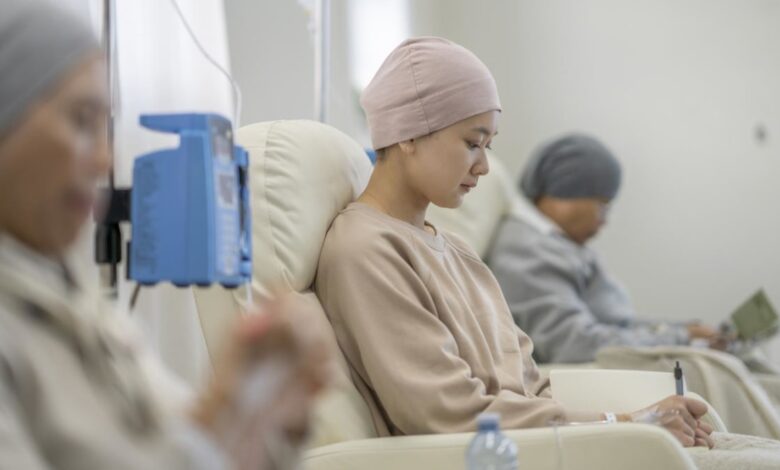How does having cancer affect a woman’s sexuality, self-image and relationships

For certain cancers, treatment also requires the surgical removal of breasts, ovaries, uterus, cervix, or other anatomical changes.
Colorectal tumours may sometimes require a colostomy, added Dr Lim. The operation creates an opening in the colon or large intestine through the abdomen where body waste is rerouted to a collection bag. This affects patients’ daily living and self-image.
June, who was diagnosed with breast cancer in 2010, had a mastectomy at the age of 28, nine months after her wedding.
“I was in denial. For weeks leading to the surgery, I often woke up in the middle of the night hoping the news was nothing but a nightmare. When reality hit, I broke down crying. The thought of waking up from the hospital bed with a flat chest and a scar across it was too much for me,” she said.
She opted for breast reconstruction and doctors were able to retain her nipple although there was now a permanent loss of sensation.
“That, together with my scars, had me worried about its impact on my relationship with my husband. But he never despised me because of that. He didn’t pressure me for physical intimacy and always placed my health and recovery as a priority,” said June.
Weight gain is also a common side effect, especially for women who undergo hormonal therapy that causes changes in their hormonal function, and early menopause, said Dr Lim.
Long-term steroid consumption as part of cancer treatment can also lead to weight gain and water retention, she added.
Lisa was diagnosed with Stage 3 thyroid cancer in 2016 and underwent surgery to remove her thyroid, which controls the metabolism, as well as her lymph nodes, vital for immune defence.
Previously an ultra-marathoner who ran 160km weekly, the 52-year-old quickly gained 8kg. “I feel frumpy and lethargic,” she said.
Even though her old clothes don’t fit her anymore, she still has them. “I refuse to buy a bigger size. I just believe that some day, I will get there. Otherwise, you will be stuck in T-shirt and shorts and pyjamas.”
DEALING WITH SEXUALITY, INTIMACY AND SEX
Many loved ones and friends do not understand the long-term impact of the disease and treatment on cancer warriors.
“I hear from patients that they typically receive the strongest support from loved ones during treatment and that it can wane over time as they complete treatment and return to their pre-cancer lives,” said NCCS’ Asst Prof Teo.
“This is natural as patients look and feel stronger. But I also hear patients say that just because they now look ‘normal’, doesn’t mean they are. Their hair may have grown back, but symptoms like fatigue and neuropathy can have lasting effects… and are not visible to others,” she added.
Sometimes, this inadvertently breaks down relationships.
One aftermath of her cancer treatment and the surgical removal of her lymph nodes is Lisa suffers from constant allergies despite taking antihistamines daily. “My eyes are always puffy, watery and itchy. I have a constant ear itch and an itch on my upper palate [in the mouth].”
This affected her sexuality, she said. “When you always have allergies, the last thing on your mind is to get intimate. And because of my allergies, I was always irritable. I also had mood swings.
“For the first six months, I got some sympathy from my partner. But after that, he was like, ‘Deal with it. It has been six months.’”




